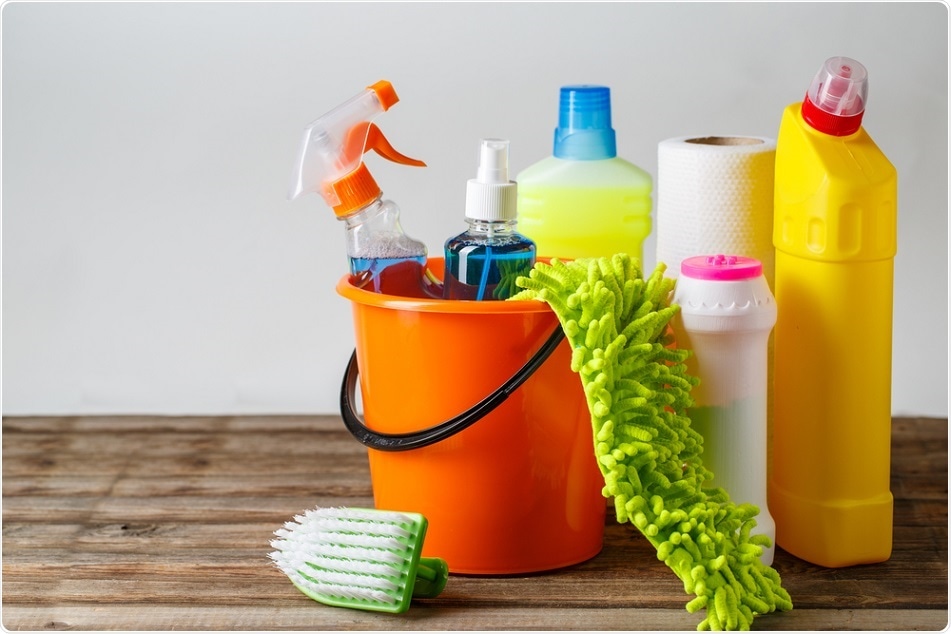Canadian researchers have shown that commonly used household cleaning products could be making children overweight by causing changes in their gut microflora.

Sergey Mironov | Shutterstock
The researchers studied the gut microbiota of 757 infants aged 3 to 4 months and established their weight once they reached 1 and 3 years old. They also assessed household exposure to detergents, disinfectants and eco-friendly cleaning products.
To analyse information on the microbes found in the fecal matter of infants, the team used data from the Canadian Healthy Infant Longitudinal Development (CHILD) birth cohort. To assess body mass index (BMI), they used data from the World Health Organization growth charts for BMI scores.
As reported in the Canadian Medical Association Journal, the greatest alterations in gut flora at 3 to 4 months were seen in households where disinfectants were frequently used. Those infants had decreased levels of the Clostridium and Hemophilus and increased levels of Lachnospiraceae. The team also found that the level of Lachnospiraceae increased, the more frequently disinfectants were used. No such association was observed when detergents or eco-friendly products were used.
We found that infants living in households with disinfectants being used at least weekly were twice as likely to have higher levels of the gut microbes Lachnospiraceae at age 3-4 months; when they were 3 years old, their body mass index was higher than children not exposed to heavy home use of disinfectants as an infant,"
Principal investigator Anita Kozyrskyj
The authors say antibacterial cleaning products are able to change the environmental microbiome and increase a child’s risk of becoming overweight.
In a related commentary, epidemiologists Noel Muller and Moira Differding from John Hopkins Bloomberg School of Public Health say: "There is biologic plausibility to the finding that early-life exposure to disinfectants may increase risk of childhood obesity through the alterations in bacteria within the Lachnospiraceae family."
They say further studies should be conducted to look at whether the use of household disinfectants contributes to the causes of obesity through microbially related mechanisms.